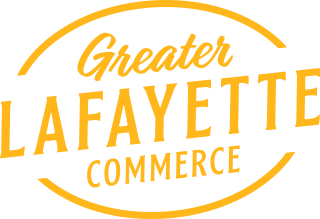THINKING OUT OF THE BOX
Our brains and past successes may actually be working against us, today.

I teach a psychology class at Ivy Tech Community College. I do it because I enjoy sharing the many different perspectives, theories, and concepts of psychology with undergraduates. One of those concepts, which comes from cognitive psychology, is problem-solving. Specifically, barriers to problem-solving. One of those barriers is called a mental set. A mental set is basically a set of behaviors that have been used to solve a problem in one’s past. When actions solve a problem for us once, our brains develop behavioral scripts based on successes and we tend to go back to those scripts to solve problems in the present. Unfortunately, this can lead to our inability to recognize and exploit new opportunities that may be presented by the problem we’re trying to solve. What has worked for us in the past doesn’t always work for the problems we have in the present.
An example of a behavioral script is searching for your keys. Let’s say it’s mid-day, you’re at work, and you need your keys. Where do you look? If you’re like me, you may search your pockets first. If you don’t find them there, you may go to your desk, or briefcase, etc. However, if you don’t find them within a reasonable amount of time, you’ll likely search your pockets again, then again, and again. You get the point, right? The mental set says, when looking for your keys, check your pockets. The set is so ingrained within our minds that we can’t stop ourselves from compulsively searching our pockets over and over, even though it’s not productive. We can get stuck in the same ruts as business owners. A problem-solving behavior has worked for us in the past, a behavioral script was developed, and now we can’t get away from it, even though it’s not working.
While mental sets are not always a bad thing, sometimes they can box us in and impede our ability to look at our problems from a different perspective. To break this cycle, cognitive psychologists suggest that we think out of the box, created by mental sets, and look at the problem creatively. They encourage us seek insight into the problem by incorporating the perspectives of others and learning new information. By synthesizing the new information and perspectives into our decision-making, our brains begin to develop new algorithms for problem-solving, drastically increasing our ability to exploit new opportunities for growth in our businesses.
Research has shown that working with a mentor alters one’s problem-solving algorithms. This can lead to increased opportunities for creative insights which can lead to creative solutions for the many unique challenges faced by business owners. The research has also shown that businesses whose owners have had a mentor are less likely to fail, and owners are more likely to spot and exploit new revenue opportunities.
So, what does it all mean? It means your brain can be your own worst enemy. It means that by continuously defaulting to past techniques to solve our business challenges, we increase our chances of missing opportunities to grow, both professionally and in our businesses. It means that gaining the perspectives of others and learning new things can help us see things we didn’t see before. It means, that by having mentors we increase our chances of success, and open ourselves up to innovative thinking. It means we may see opportunities when we use to see obstacles.
Greater Lafayette Commerce is committed to supporting business members. We want to see you succeed and thrive. The business success platform was designed with these things in mind. The IN-Tandem program is a mentoring program which connects you to a mentor who will help you design a plan for developing the skills you need to succeed.
If you’re interested in participating in this program, or if you have skills that you would like to share with others, please contact me.
About the Author
Mark Lowe is a serial entrepreneur, owning and operating multiple businesses. He's earned an MBA in Experimental Social Psychology and an MS in Human Resources and Organizational Development from Indiana State University. He is passionate about helping business owners navigate the many challenges they face daily.
How to Contact Mark
Email: mlowe@greaterlafayettecommerce.com
